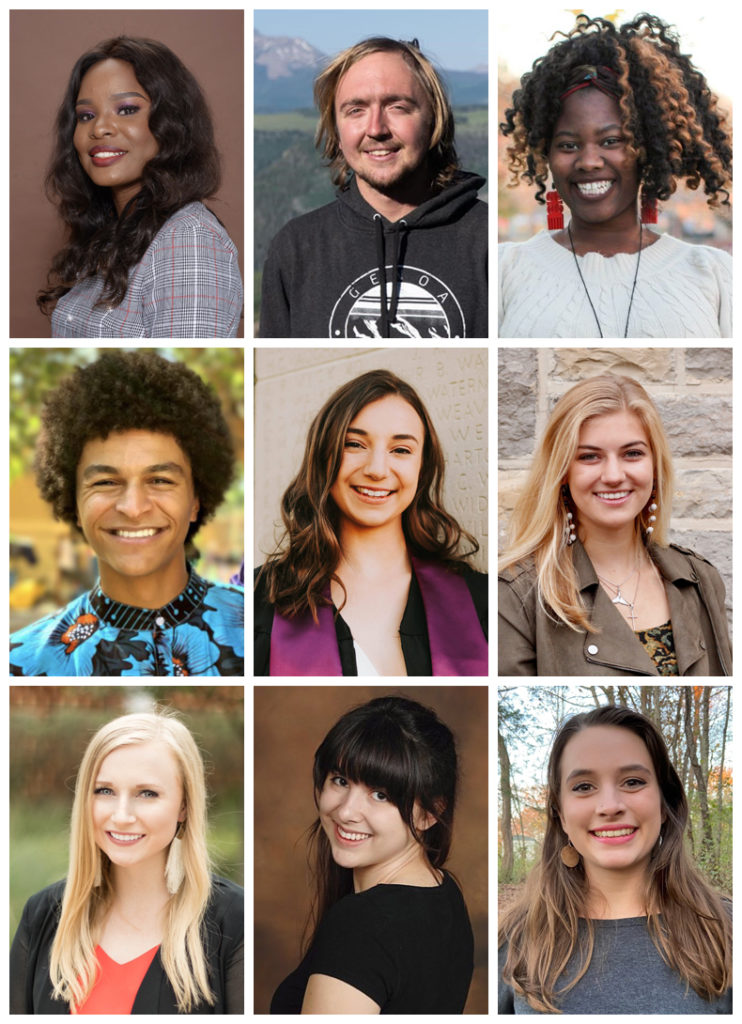Agricultural education fellows to pursue Borlaug’s mission abroad
International Agricultural Education Fellowship Program sends fellows to Ghana
A boots-on-the-ground effort to improve school-based agriculture education in Ghana is the mission of the first cohort of fellows for the International Agricultural Education Fellowship Program, IAEFP.

The Norman Borlaug Institute for International Agriculture, a unit of Texas A&M AgriLife, hosts IAEFP. It was founded in partnership with AgriCorps, which developed the training curriculum. The project is funded by the U.S. Department of Agriculture Foreign Agriculture Service.
As the final step in their preparation for their departure to Ghana, the newly named fellows met in Bryan-College Station for stateside training and team building. The fellows leave July 31 to spend 10 months in Ghana helping local students and rural communities with agricultural education and development in the country’s eastern and central regions.
The fellows will continue to receive in-country training through the Borlaug Institute from agriculture and Extension agents as they work with IAEFP’s partner, 4-H Ghana.
IAEFP fellows
The fellows were selected in the spring. Nine individuals from across the country were chosen from the numerous applicants for their passion for agriculture education, their leadership and their unique life experiences. The fellows will take their passion for agriculture education to communities in Ghana.
“They will be in rural Ghana working as agriculture teachers, Extension agents and 4-H advisors using AgriCorps’ already well-established and proven curriculum, programming and training,” explained Jessica Spence ’18 ‘20, IAEFP program coordinator at the Borlaug Institute.
The nine 2021-22 IAEFP fellows are:
- Praise Benson, Prairie View A&M University master’s degree student in community development.
- Conor Billman, University of Nevada-Reno bachelor’s degree graduate in agricultural science.
- Arogeanae Brown, Virginia Tech doctoral degree student in agricultural, leadership and community education.
- Manuel Catala, Penn State bachelor’s degree graduate in agricultural and extension education.
- Tessa Hawley, Virginia Tech bachelor’s degree graduate in applied economic management.
- Mary Michael Lipford, Virginia Tech bachelor’s degree graduate in crop and soil environmental sciences.
- Sherrie Ray, Texas Tech University bachelor’s degree graduate in agriculture communications.
- Ella Scott, Cornell University bachelor’s degree graduate in biology and agriculture education.
- Lauren Seely, Virginia Tech bachelor’s degree graduate in environmental science.
Fellows pursuing the Borlaug mission and AgriCorps’ legacy
“If you think about the Borlaug Institute’s mission, I can’t think of a project that stands by that definition more than IAEFP,” Spence said.
The Borlaug Institute is dedicated to continuing the legacy of Norman Borlaug, Ph.D., who is often hailed as the “father of the Green Revolution.” Borlaug sought to help elevate small-holder farmers around the world out of poverty and hunger through agricultural science. The Borlaug Institute focuses on designing and implementing science-based agricultural development and training programs to benefit small-holder farmers in the developing world.
Before IAEFP, partner group AgriCorps had hosted agricultural education fellows in Ghana and Liberia beginning in 2014.
“AgriCorps based their platform on the PeaceCorps, except for one distinct difference; all AgriCorps fellows had to have an agricultural university degree,” said Jack Elliot, Ph.D., IAEFP program director. Elliot is Africa regional director for the Borlaug Institute and a past founding member of the AgriCorps board of directors.
“You have to have that agricultural background if you’re going to make a difference in agriculture and production,” he said.
AgriCorps’ direction has shifted over the years towards agriculture education policy initiatives rather than direct education. As a result of a federal grant from U.S. Department of Agriculture Foreign Agriculture Service, the Borlaug Institute was able to create the IAEFP in late 2020 to bring fellows to Ghana.
Spence sees the new IAEFP fellows as following in the footsteps set by the past AgriCorps fellows and the IAEFP fellowship as part of the bigger process of helping school-based agricultural education be implemented across classrooms in the developing world.
“AgriCorps fellows in the past have been very successful and have left sustainable change in aiding farmers, increasing their yields, educating youth and helping their teacher partners in the classroom by bringing tools and curriculum they may not have had,” she said. “Being part of this new chapter of that effort here at the Borlaug Institute is really exciting.”
Future IAEFP fellowship opportunities
This 2021-22 cohort of IAEFP fellows is the first under the Borlaug Institute project. The second cohort’s application process for the 2022-23 year will begin in late 2021/early 2022. Applications will be due on Feb. 1.
“Working with strong partners like 4-H Ghana and AgriCorps to improve school-based agriculture education, that’s really the mission,” Spence said. “The fellows, by being part of that boots-on-the-ground effort, are a huge part of how we do that.”
For more information on the IAEFP, visit [applications closed] or email Spence at [email protected].


